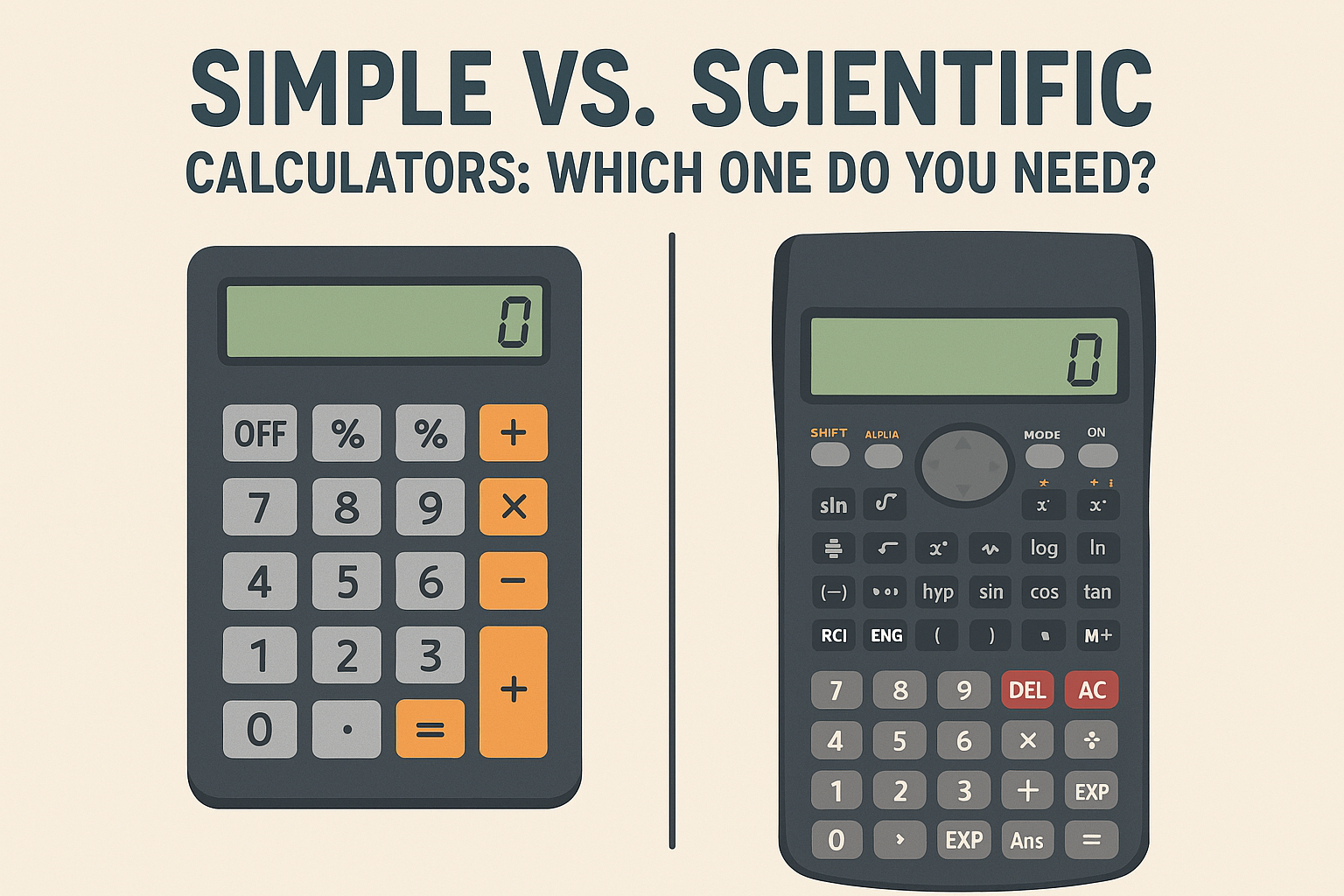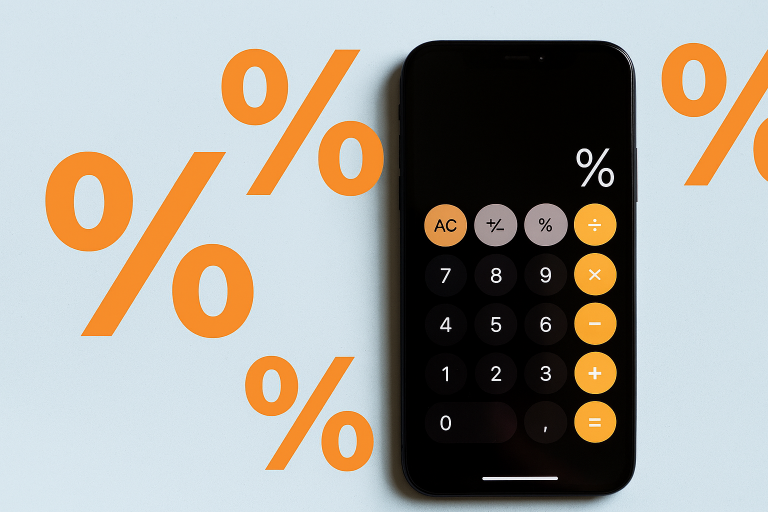Calculators are no longer reduced-to-practice machines but rather highly advanced tools for solving complex equations. But with all the options available, when deciding between a scientific calculator and a normal calculator, how do you know what’ll suit you?
Here, we’ll contrast and compare the two, provide you with typical use cases, and assist you in selecting the appropriate tool—whether you’re shopping for school, on a budget, or tackling real-world issues.
🧮 What is a Simple Calculator?
A standard calculator, commonly called a four-function calculator or normal calculator, performs the basic arithmetic operations:
Addition (+)
Minus (-)
Multiplication (×)
Division (÷)
They do include, for example:
Calculating Percentages
Square root
Memory operations (M+, M–, MR)
✅ Perfect for
Elementary school and middle school students
Rapid every day calculations (tips, change, bills)
Budget and shopping
Basic Business Mathematics
Advantages:
Easy to operate
Low-cost
Portable and light-weight
Long battery life or solar power
Disadvantages:
WON’T do complex math
No trigonometry, no algebra, no statistical functions
🔬 What is a Scientific Calculator?
A scientific calculator gives you all the capabilities of a standard calculator—and much more. It is designed for advanced math and science, with features and functions such as:
Trigonometric functions are sin, cos, tan
Roots and Exponents
Logarithms (log, ln)
Pi (π) and scientific notation
Fractions, factorials (n!)
Equation solvers
Memory registers and multi-step calculations
✅ Ideal for:
High school and college students (math, physics, chemistry)
Scientists and engineers
Financial analysts
Anyone who is handling advanced equations
Benefits:
Performs complex operations
Widely accepted across various academic circles
Ideal for STEM careers
Limitations:
Steep learning curve
More costly
may prove too extensive for little requirements
🧠 Simple vs. Scientific: What You Must Decide
| Scenario | Best Option | Why |
|---|---|---|
| Everyday use (bills, tips, quick math) | Simple Calculator | Quick, lightweight, no unnecessary fluff |
| Middle school student | Simple Calculator | Level is similar to the curriculum |
| High school math or science | Scientific Calculator | Required for algebra, geometry, trigonometry |
| College STEM major | Scientific Calculator | It performs complex and multi-function equations |
| Business owner managing inventory or pricing | Depends | Simple may work, but scientific is more flexible Budget and taxation |
| Budgeting and taxes | Simple Calculator | A basic calculation |
💡Pro Tip: Using Web-based Calculators as a Substitute At decimaly.com, you have access to free, fast, and accurate online calculators for everything from percentages to compound interest and more—all with no device to buy and carry with you.
➡️ browse through our calculator tools to find exactly what you’re looking for, when you’re looking for it.
🔚 Last Word The calculator you need is determined by the kind of complexity of the problems that you are solving. If you are handling routine, everyday numbers—keep things basic. If studies or your profession enter formulas and functions and the like—a scientific calculator is the wiser choice.
No matter what math you need, Decimaly.com simplifies math, and all of this, one decimal at a time.






